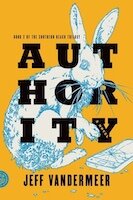Review: My Favorite Thing is Monsters Vol. 1
/5 stars. Absolutely perfect. This revolutionary graphic novel soothed aches in my soul I didn't even know existed. Every word - every image - is a precious treasure. This is a story wrapped in a story with other stories weaved throughout, but there's nothing precocious or overly ambitious. It reaches, it aims, it fires, and it hits the mark.
My Favorite Thing is Monsters (Vol. 1) is 10-year-old Karen Reyes' notebook, filled with her doodles and drawings and a personal narrative of her life in late-60's Chicago. Through her eyes we meet her mother (well-intentioned, strict), her brother (protective, hard-working), and a colorful cast of characters that dance in and out of her experiences. Her neighbor, Anka, has died under mysterious circumstances, and her effort to learn Anka's heartbreaking story becomes crucial in shaping her developing sense of self. Karen's identity is central here, and central to my personal reaction.
I hate when reviewers (and I am super guilty of this, too) end up competing over who appreciated a book more. It spoke to ME because XYZ. Well, it spoke to ME MORE because XYZ. That sort of thing. And I'm afraid that if I dive into why My Favorite Thing is Monsters resonated so strongly - took my breath away - it'll come across as even MORE ridiculously dramatic than the first paragraph in this response. So I'll keep myself out of it and try to keep things dry, if you will.
Narratively, it works. Each component of the story is immersive in its own way and doesn't ask too much of the reader. It avoids tropes and/or anything particularly gratuitous, though there is nudity and many mature themes. It addresses many difficult topics: murder, death, illness, mortality, the Holocaust, racism, discrimination, bullying, sexuality, etc. with grace and ease and also a freshness I haven't encountered before.
Visually, it's stunning. The artwork consists of doodles, portraits, illustrations and spectacular recreations of famous pieces of art. Several pages depict not only incredibly accurate individuals - but incredibly accurate expressions.
If I had one quibble, it would be the age of the protagonist: she seems WAY too talented/intelligent for a 10-year-old! Nothing against 10-year-olds, but I would've been thrilled to have mastered the fancy S at that age.
I'd recommend this for: outsiders. People who feel like aliens in their own bodies. Art lovers. Horror lovers. People who have struggled - who are still struggling. Minorities. Young folks. Old folks. People who have suffered tragedy at the hands of others. Victims. Creatives. Those who are constantly slapped in the face with the fact that the world is not what they expected nor what they hoped. Those who have to endure regardless.










